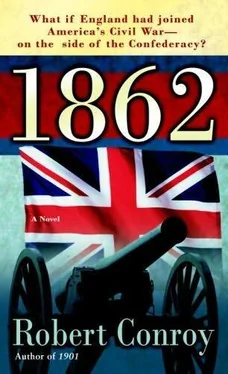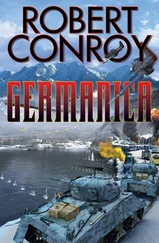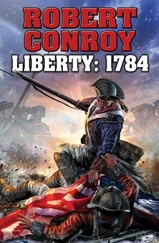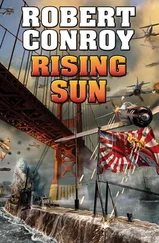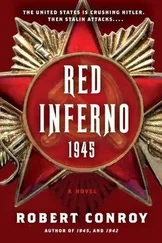Robert Conroy - 1862
Здесь есть возможность читать онлайн «Robert Conroy - 1862» весь текст электронной книги совершенно бесплатно (целиком полную версию без сокращений). В некоторых случаях можно слушать аудио, скачать через торрент в формате fb2 и присутствует краткое содержание. Жанр: Альтернативная история, на английском языке. Описание произведения, (предисловие) а так же отзывы посетителей доступны на портале библиотеки ЛибКат.
- Название:1862
- Автор:
- Жанр:
- Год:неизвестен
- ISBN:нет данных
- Рейтинг книги:5 / 5. Голосов: 1
-
Избранное:Добавить в избранное
- Отзывы:
-
Ваша оценка:
- 100
- 1
- 2
- 3
- 4
- 5
1862: краткое содержание, описание и аннотация
Предлагаем к чтению аннотацию, описание, краткое содержание или предисловие (зависит от того, что написал сам автор книги «1862»). Если вы не нашли необходимую информацию о книге — напишите в комментариях, мы постараемся отыскать её.
1862 — читать онлайн бесплатно полную книгу (весь текст) целиком
Ниже представлен текст книги, разбитый по страницам. Система сохранения места последней прочитанной страницы, позволяет с удобством читать онлайн бесплатно книгу «1862», без необходимости каждый раз заново искать на чём Вы остановились. Поставьте закладку, и сможете в любой момент перейти на страницу, на которой закончили чтение.
Интервал:
Закладка:
“Don't know him,” Nathan said. He was beginning to feel tired and he yawned hugely. The whiskey on an empty stomach was starting to win.
Scott ignored it. “John Hay is a very young man, only in his early twenties. He is handsome, bright, diligent, and hardworking. He is also one of Mr. Lincoln's personal secretaries, an assistant to Mr. Nicolai. I wish you to give Mr. Hay a note from me to Mr. Lincoln. If you assure him that discretion is paramount, he will understand.”
“That's it?”
“Then we wait and see what transpires. It may be days or even weeks before Mr. Lincoln responds, although I hope not much longer. In the meantime, you may reside here along with me. There's plenty of room for us and we won't get in each other's way. The house was rented on my behalf by a wealthy friend who paid a price well in excess of its worth.”
“Is the renter anyone I know?”
“You.”
“Damn, sir,” Nathan said and then exploded in laughter.
Almost since the first guns had been fired at Fort Sumter, British shipbuilders had conspired with the Confederacy in a great deception against the Union. Specifically, British shipyards contracted to build blockade-runners and commerce raiders for the South. The subterfuge was simple. A foreign company, French or Dutch for instance, would have the ship built as a merchant vessel in a British yard, and sailed out under its national flag and with an appropriate non-Confederate crew. When it reached a neutral destination, the crew was exchanged for a Southern one, the ship was armed, and sent on its way.
Through spies that roamed the waterfronts of England, France, and the other seafaring nations, the Union was aware of the duplicity. The Union's ambassador to Great Britain, Charles Francis Adams, had complained mightily to Her Majesty's government, but to no avail. It served Great Britain to permit the Confederacy to act in such a manner and to pretend it wasn^’ t happening. The actions were condoned to the extent that British warships often accompanied the counterfeit merchant ships out to the open sea to ensure that Union warships did not attempt to stop them.
On this day. the unarmed and brand-new “merchant” shipHenrietta was making her maiden run from Liverpool. It was common knowledge that the sleek and swift ship had been built for blockade-running and not for sailing stolidly into a safe harbor with a hull full of bulk goods. At a given place and time, theHenrietta would be renamed and transformed into a Confederate blockade-runner.
On this day, the disguised rebel was escorted out of Liverpool by the Royal Navy's steam frigateGorgon, as just over the horizon lay the U.S. sailing frigateSt. Lawrence. The Gorgon's duty was to ensure that the coyly namedHenrietta safely cleared British waters and was sent on her way unimpaired. If she was captured later, well, that would be someone's bad luck. She would not, however, be stopped by an American while in anything approximating British waters.
TheGorgon mounted seventy-four guns to theSt. Lawrence's fifty, and the qualitative difference was even greater than the numeric as theGorgon's weapons were newer and larger. Further, the British ship's ability to use steam instead of depending on sail and the whims of wind made her an adversary with overwhelming advantages.
As the Confederate in disguise and the British warship headed out of harbor, a number of other, smaller craft followed. Their passengers and crew were in search of excitement.
In a short while, the U.S. ship hove into view. TheGorgon interposed herself between theHenrietta and theSt. Lawrence and, almost contemptuously, signaled that the smaller American ship must depart the area. The American declined.
On board theGorgon. Captain David Hawkes fumed at the insolence of America in general and this American ship in particular. There had been no response from the Yank, and Hawkes considered his options. He hadn't received official word that Great Britain was at war with the United States, although it was common knowledge that such notice would be forthcoming. England was not going to sit still while her helpless ships were sunk. For all Hawkes knew, news of the war was waiting for him at the dock back at Portsmouth.
This confronted Hawkes with a dilemma. His orders were to protect theHenrietta and nothing more unless the American tried something rash. But if war had been declared, theSt. Lawrence was a legitimate target and should be taken. If he let her go, then she might prey on other British shipping.
“Order the American to heave to,” Hawkes commanded. He would board her and have her taken back to England, where people greater than he could sort it out.
When theSt. Lawrence didn't respond, Hawkes ordered theGorgon's guns run out and a warning shot fired. He noted that, while theSt. Lawrence's gun ports were open, her cannon had not been run out. This was a condition that could be changed in an instant, and the American's gun crews were doubtless poised to do just that.
TheSt. Lawrence again did not respond. Instead, she turned and started to sail away. For an instant, Hawkes found himself admiring the graceful lines of a ship that belonged to a bygone era. Sail had first been replaced by the steam engine and the paddle wheel. Soon the cumbersome and vulnerable paddle wheel had been succeeded by a propeller, or screw, that was beneath the stern of a ship like theGorgon and safely out of the way.
TheSt. Lawrence and others like her were two generations behind modern warships. Even the mightyGorgon had fallen behind. She could not compare with ironclad monsters like the Royal Navy'sWarrior andBlack Prince, or France'sGloire.
“One more warning shot,” Hawkes said sadly. His course of action was now clear to him.
The Gorgon's naked masts were in stark contrast to the billowing sails of the anachronistic St. Lawrence, The U.S. ship continued to ignore him, and even ran out her guns. It was a threat the British captain could not ignore. Hawkes easily maneuvered theGorgon so that his powerful port-side guns could rake the stern of theSt. Lawrence.
“Fire,” he ordered and, seconds later, the broadside thundered out, causing the ocean around the ships to quiver. The shells from theGorgon smashed through theSt. Lawrence and streaked down her length, smashing the guns and maiming the crew, who were swept away by the torrent of metal and wooden splinters.
TheGorgon turned and presented her starboard guns to the desperately maneuvering American. A second broadside thundered, again raking theSt. Lawrence, and she shook as if a giant hand had grasped her and pummeled her. A few of the American's guns returned fire, but to no effect. Hawkes wondered if they had been aimed or set off by the fires that were ravaging the ship. No matter, the American's honor was intact-she had fired back. Why didn't she strike her colors?
A third British broadside brought down a mast and caused a massive explosion within the smaller American vessel. Hawkes watched as a body was flown clear of the ravaged ship. It was enough. The American flag was run down.
Hawkes ordered the cease-fire and sent men to take over the frigate and to treat the American wounded. From the looks of the ship, there must be literally hundreds of casualties. God help the United States of America if this was the best they had in the way of warships. TheSt. Lawrence had been both toothless and helpless in comparison with theGorgon. It had been an execution, not a fight.
“Well” Hawkes said grimly as he turned to the knot of officers gathered behind him. “If we weren't at war before, we certainly are now.”
Chapter Three
When Nathan returned to what he now referred to as home, it was late at night and he was attracted by the light in the first-floor sitting room. General Scott was in a chair and sipping a brandy. Beside him was an empty plate.
Читать дальшеИнтервал:
Закладка:
Похожие книги на «1862»
Представляем Вашему вниманию похожие книги на «1862» списком для выбора. Мы отобрали схожую по названию и смыслу литературу в надежде предоставить читателям больше вариантов отыскать новые, интересные, ещё непрочитанные произведения.
Обсуждение, отзывы о книге «1862» и просто собственные мнения читателей. Оставьте ваши комментарии, напишите, что Вы думаете о произведении, его смысле или главных героях. Укажите что конкретно понравилось, а что нет, и почему Вы так считаете.
